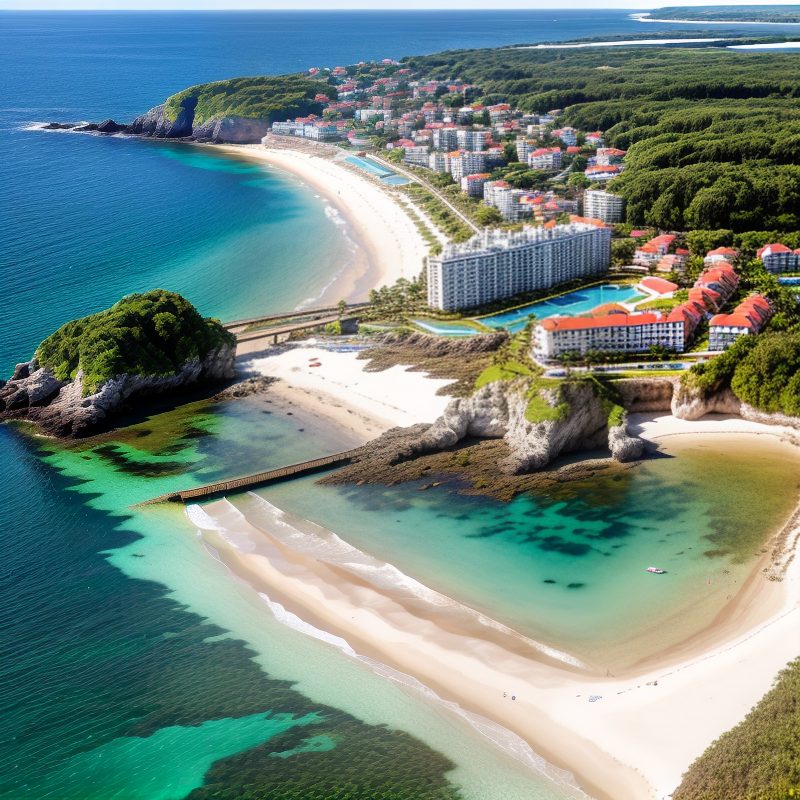Empowering Future Economists
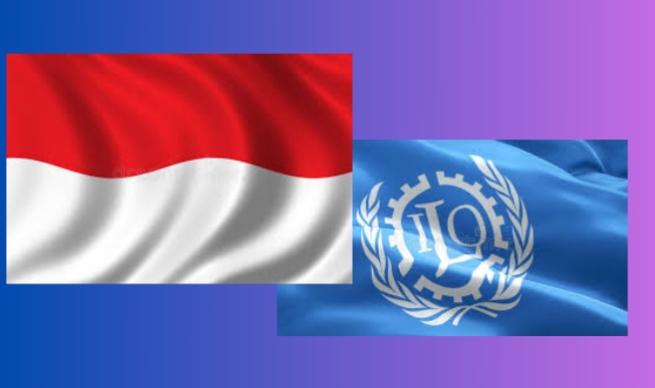
Adaptation of Teaching Labour for Business Students
Join us in revolutionizing the curriculum at Universitas Diponegoro by embedding essential labour rights and employment issues, ensuring our students are well-prepared for the challenges of the modern workforce.
Supported and Promoted by 8.7 Accelerator Lab.
Transforming Education for a Better Tomorrow
Consultancy Objectives
Adapting ILO Resources for Economic Education
Key Objectives

Labour Rights Integration

Forced Labour Awareness
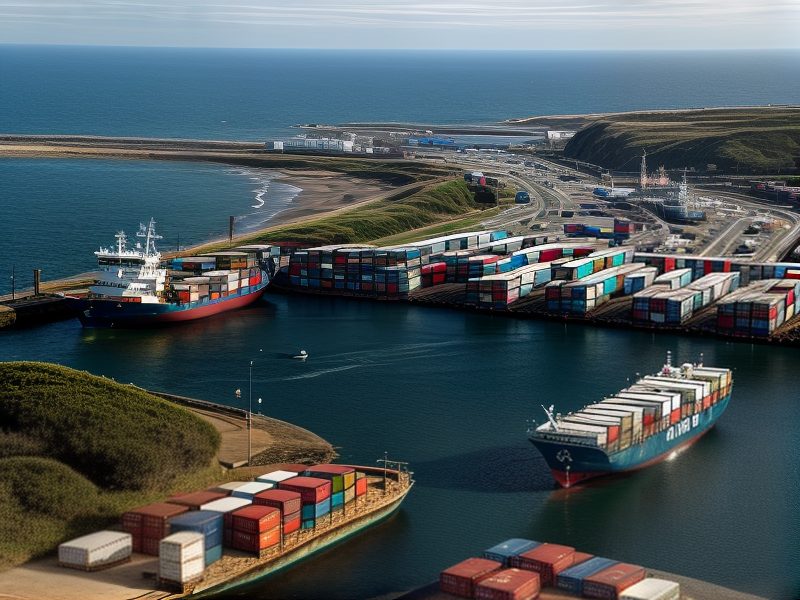
Fair Recruitment Practices
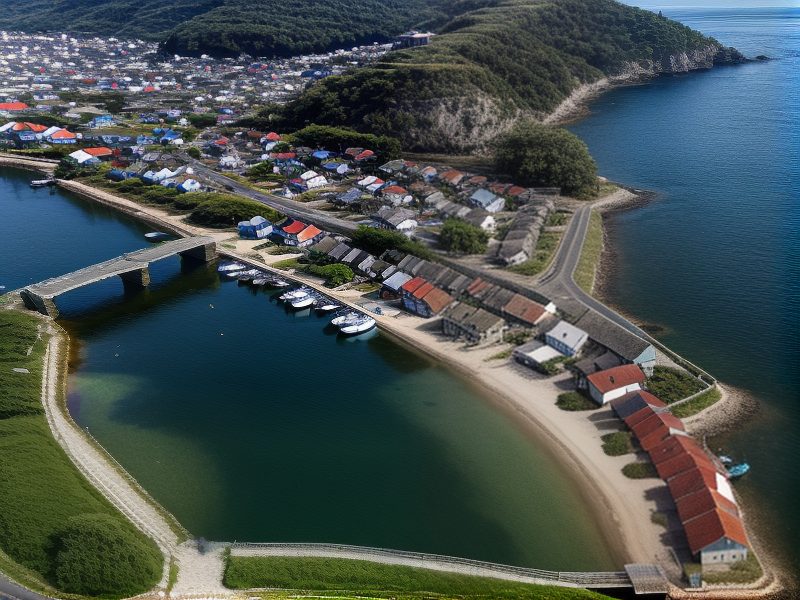
Scaling Up
Expand the adapted ILO teaching resources to four coastal universities, enhancing the reach and impact of our program.
Curriculum Development for Business Students
Adapting ILO Teaching Resources at Universitas Diponegoro
Visual Insights into Coastal Economies
Exploring Labor Rights through Imagery
What Our Community Says
The adapted ILO teaching resources have significantly enhanced my understanding of labor rights and employment issues. The modules are comprehensive and highly relevant to our coastal economy.
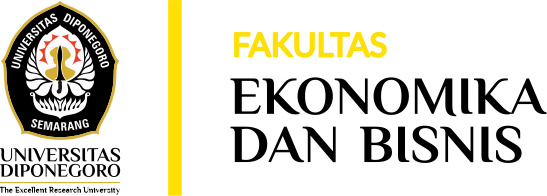
Dr. Jaka Aminata
Faculty Member, Universitas Diponegoro
Participating in the scale-up program has been transformative. It has provided me with practical skills and a deeper appreciation for labor rights in our region.

Revo Alvorian
Alumni of Universitas Diponegoro
The workshops and case studies have been invaluable. They offer real-world applications and have prepared me to advocate for decent work practices effectively.
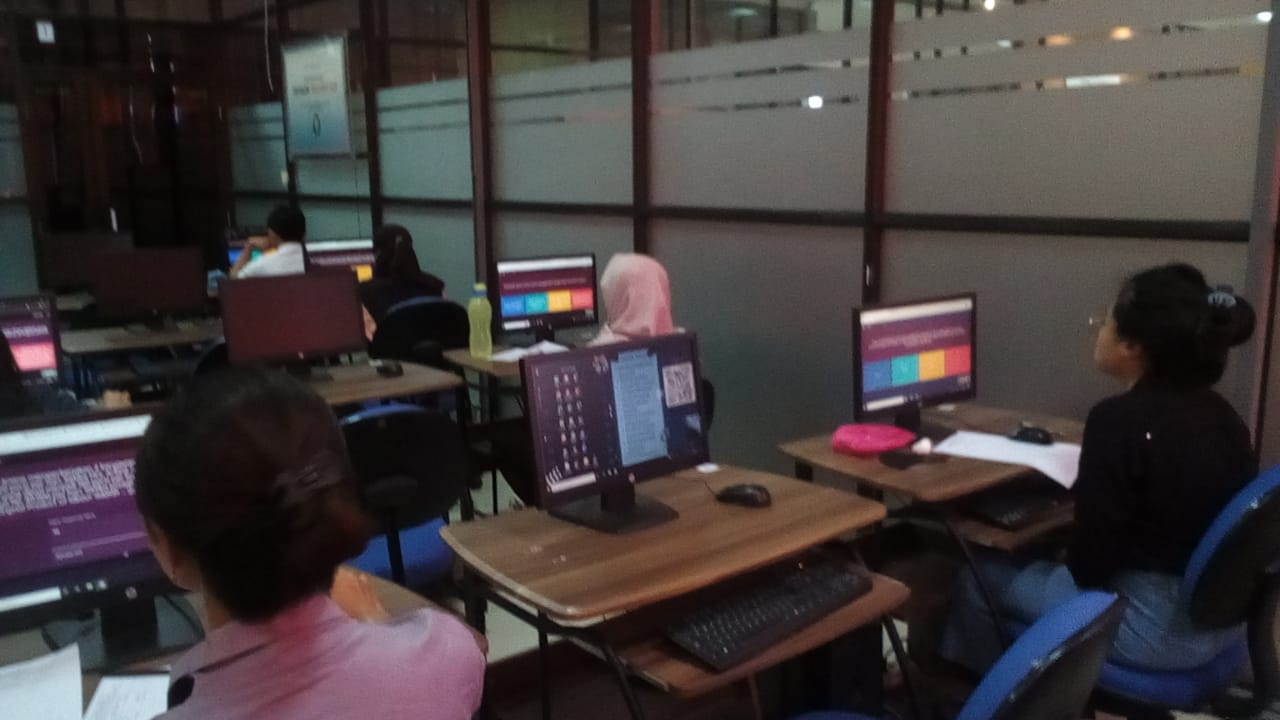
Selly Kartika
Human Rights Advocate
Adaptation of Teaching Labour for Business Students in the Faculty of Economics and Business Universitas Diponegoro and Scaling Up Programme in Four Coastal Universities in Central Java
Introduction
ILO through the 8.7 Accelerator Lab Programme has established new forms of collaboration and engagement to tackle the root causes of forced labour in the fishing sector including with academic institutions. At the global level, the International Labour Organization (ILO), the Global Business School Network (GBSN) and the Geneva School of Economics and Management (GSEM) of the University of Geneva signed a Memorandum of Understanding (MoU) to strengthen collaboration on business and human rights education.
In this event, the ILO brought together a global network of business schools including a representative from the University of Diponegoro, who are committed to transforming business education that will create opportunities to pool academic, policy-oriented and practical expertise on key labour issues that affect responsible business conduct; including child labour, forced labour, discrimination, lack of workers’ representation, social dialogue, labour migration and fair recruitment.
As a follow-up of the global collaboration, the ILO through the 8.7 Accelerator Lab Programme has been working with the University of Diponegoro organizing a series of training workshops targeting journalism and business students as well as their faculty members in the context of combating forced labour and the elimination of child labour in the fishing sector. On 29 August 2023, ILO Director and Rector of Universitas Diponegoro signed a joint collaboration to support ILO’s strategies to build collaboration and engagement in tackling forced labour in the fishing sector. This new partnership is expected to increase the knowledge of business students and their faculty members including lecturers both men and women about forced labour in the fishing sector.
Following up this joint collaboration, the ILO’s 8.7 Accelerator Lab Programme will need to conduct a needs assessment and develop as well adapt the teaching resources for students of UNDIP referring to ILO toolkits teaching labour for business students and ILO toolkits on reporting forced labour for journalism students into UNDIP’s curriculum. Besides, in collaboration with UNDIP, the project will also scale up the teaching resources to four coastal universities in Central Java province. These teaching resources have been designed to help improve knowledge university students on labour rights issues and fundamental principles and rights of workers particularly on the forced labour and fair recruitment, and advance skills to cover stories of forced labour and fair recruitment.
2. Objectives
The objective of this consultancy is to adapt ILO teaching resources to allow the University of Diponegoro to mainstream labour rights and employment issues into its curriculum, specifically to:
- Address labour rights issues and fundamental principles and rights of workers particularly on the forced labour and fair recruitment.
- Conduct scale up program of the adapted ILO teaching resources to four coastal universities and other faculty members.
The ultimate objective of these works is to enhance the knowledge and skills of students and faculty members on labour and employment issues in general and the work in the fishing sector in particular.
- Adaptation Strategy
A structured approach to creating and implementing the consultancy works will cover the following strategy:
- Promote Decent Work Agenda:
- Educate on fair wages, safe working conditions, and workers’ rights.
- Business and Human Rights:
- Highlight the UN Guiding Principles on Business and Human Rights.
- Highlight the ILO’s Fundamental Principles and Rights of Workers
- Local and Global Impact:
- Address local issues related to coastal economies.
- Consider global human rights challenges in business.
- Stakeholders Involved
- Coastal universities and their academic departments.
- Local businesses and industries including the private recruitment agencies.
- Trade unions, NGOs and civil society organizations.
- Government agencies.
- The work to be performed
- Needs Assessment
- Surveys and Interviews: Conduct surveys and interviews with students, faculty, local businesses, and community leaders to understand current knowledge and gaps.
- Stakeholder Meetings: Meet critical stakeholders to gather input and support.
- Curriculum Development
- Module 1: Introduction to Decent Work
- Definitions and importance.
- International standards (ILO) and Fundamental Principles and Rights of Workers.
- Case studies of decent work practices.
- Module 2: Business and Human Rights Framework
- UN Guiding Principles on Business and Human Rights.
- Corporate social responsibility (CSR) and sustainability.
- Case studies of human rights in business.
- Module 3: Coastal Economy and Labor Rights
- Specific challenges in coastal regions (e.g., fishing, tourism, shipping).
- Environmental impacts on labor conditions.
- Local labour laws and regulations.
- Module 4: Practical Skills and Advocacy
- Workshops on implementing decent work practices.
- Human rights advocacy and activism.
- Project-based learning and community engagement.
- Delivery of activities
- Assessment at UNDIP and four coastal universities
- Adaptation and development of teaching curriculum
- Facilitate Training of trainers: lectures
- Field Visits: Visits to local businesses and communities.
- Online Resources: E-learning modules and virtual workshops for wider reach.
- Collaboration and Partnerships
- University Collaboration: Form a consortium of coastal universities for resource sharing and joint initiatives.
- Industry Partnerships: Engage local businesses for internships, guest lectures, and case studies.
- The Trade Union and NGO Collaboration: Partner with human rights organizations for expertise and advocacy training.
- Evaluation and Feedback
- Monitoring and Evaluation: Regularly assess the program’s effectiveness through feedback forms, surveys, and performance metrics.
- Continuous Improvement: Use feedback to refine and improve the curriculum and teaching methods.
- Implementation Plan
Phase 1: Planning and Development
- Conduct needs assessment.
- Develop curriculum and materials.
- Establish partnerships and collaborations.
Phase 2: Pilot Program
- Launch pilot program with selected universities and businesses.
- Collect feedback and make necessary adjustments.
Phase 3: Full Implementation
- Scale-up program to more universities and regions.
- Continuously monitor and refine the program.
Phase 4: Scaling and Sustainability
- Scale the program nationally and internationally.
- Establish a sustainable funding model.
- Create an alumni network for ongoing support and advocacy.
Additional Considerations
- Cultural Sensitivity: Ensure the program respects and incorporates local cultures and traditions.
- Inclusivity: Make the program accessible to diverse groups, including marginalized communities.
- Technology Integration: Utilize digital tools to enhance learning and reach a broader audience.
Empower Your Knowledge on Labour Rights
MOU PRODI S1 ECONOMICS – MGMP JAWA TENGAH
Pembangunan Berkesinambungan Masyarakat Pesisir
Coastal Community Sustainable Development
BREB-PEPETEP – Wilayah Pantai Utara Jawa
[Brebes, Batang, Pemalang, Pekalongan, Tegal, Pati – BREB-PEPETEP ]
Pertemuan 1: Pengembangan Kurikulum Guru Sekolah Tinggi
Pertemuan pertama ini difokuskan pada pengembangan kurikulum untuk guru-guru sekolah tinggi. Guru-guru sekolah tinggi memiliki peran yang penting dalam membentuk pemikiran dan sikap siswa terhadap lingkungan pesisir. Oleh karena itu, pertemuan ini dimaksudkan untuk memberikan pemahaman yang kuat tentang isu-isu yang relevan dengan pengembangan masyarakat pesisir. [Para stakeholder, included; Government, Entrepreneur dan Serikat Pekerja]
Topik-topik yang dibahas:
Pengenalan konsep pengembangan masyarakat pesisir:
Definisi dan pentingnya pengembangan masyarakat pesisir.
Gambaran umum tentang ekosistem dan masyarakat pesisir.
Tantangan yang dihadapi oleh masyarakat pesisir:
Perubahan iklim dan dampaknya terhadap pesisir.
Konservasi lingkungan pesisir.
Praktik berkelanjutan dalam pengembangan masyarakat pesisir:
Ekonomi biru: Potensi ekonomi dari sektor perikanan, pariwisata, dan industri maritim.
Integrasi sosial dalam konteks pesisir.
Kelayakan kerja di sektor perikanan:
Diskusi tentang peluang kerja di sektor perikanan, termasuk berbagai peran yang tersedia, persyaratan kualifikasi, dan tantangan yang mungkin dihadapi oleh pekerja di sektor ini.
Pertemuan 2: Tantangan Siswa
Pada pertemuan kedua, fokusnya adalah pada peran siswa sebagai agen perubahan dalam pengembangan masyarakat pesisir. Siswa memiliki potensi besar untuk menjadi agen perubahan positif dalam komunitas mereka sendiri. Oleh karena itu, pertemuan ini dirancang untuk membekali mereka dengan pengetahuan dan keterampilan yang diperlukan untuk menghadapi tantangan-tantangan yang dihadapi oleh masyarakat pesisir.
Topik-topik yang dibahas:
Pemetaan aset dan tantangan dalam komunitas pesisir:
Identifikasi potensi dan masalah yang dihadapi oleh masyarakat pesisir.
Dimensi lingkungan, ekonomi, dan sosial dari kehidupan pesisir:
Memahami kompleksitas hubungan antara manusia dan lingkungan di daerah pesisir.
Inovasi dalam pengembangan masyarakat pesisir:
Penggunaan teknologi untuk memecahkan masalah komunitas pesisir.
Proyek inovatif yang dapat dilaksanakan oleh siswa untuk meningkatkan kesejahteraan masyarakat pesisir.
Kelayakan kerja di sektor perikanan:
Presentasi tentang peluang karir di sektor perikanan, termasuk jenis pekerjaan yang tersedia, persyaratan kualifikasi, dan prospek masa depan.
Pertemuan 3: Pengembangan Sosial Ekonomi Masyarakat
Pertemuan ketiga ini difokuskan pada pengembangan ekonomi sosial masyarakat pesisir. Praktisi ekonomi sosial dan pemimpin komunitas memiliki peran yang penting dalam mempromosikan pembangunan ekonomi yang inklusif dan berkelanjutan di wilayah pesisir.
Topik-topik yang dibahas:
Konsep dan model-model ekonomi sosial:
Pemahaman tentang model-model ekonomi sosial yang dapat diterapkan di masyarakat pesisir.
Pemberdayaan ekonomi:
Strategi untuk membangun modal sosial dan ekonomi di masyarakat pesisir.
Inisiatif-inisiatif pemberdayaan ekonomi seperti keuangan mikro dan pengembangan usaha kecil dan menengah (UKM).
Kelayakan kerja di sektor perikanan:
Diskusi tentang berbagai pekerjaan yang terkait dengan sektor perikanan, termasuk tanggung jawab, persyaratan kualifikasi, dan peluang untuk kemajuan karier.
Pertemuan 4: Tren dalam Pembangunan Komunitas dan Aspek Budaya
Pertemuan terakhir ini menggali tren terkini dalam pembangunan komunitas pesisir dan aspek budaya yang terkait. Para peserta diajak untuk membahas bagaimana tren dan aspek budaya tersebut dapat mempengaruhi upaya pengembangan masyarakat pesisir di masa depan.
Topik-topik yang dibahas:
Tren dalam pembangunan komunitas pesisir:
Inovasi teknologi dan praktik terbaik dalam pengembangan masyarakat pesisir.
Peran agen-agen manning dan serikat dagang dalam pembangunan tenaga kerja pesisir.
Aspek budaya dalam pembangunan komunitas pesisir:
Pentingnya warisan budaya dalam memperkuat identitas lokal.
Tantangan dalam melestarikan dan mempromosikan budaya lokal di era globalisasi.
Kelayakan kerja di sektor perikanan:
Panel diskusi dengan ahli dan praktisi di sektor perikanan tentang peluang karir, tantangan, dan tren masa depan dalam industri perikanan.
Output dan Outcome
Melalui empat kali pertemuan ini nanti, diharapkan peserta akan mendapatkan pemahaman yang lebih mendalam tentang pengembangan masyarakat pesisir serta memiliki keterampilan yang diperlukan untuk berkontribusi dalam upaya pembangunan yang berkelanjutan di wilayah pesisir. Diskusi tentang kelayakan kerja di sektor perikanan juga memberikan wawasan tambahan bagi peserta yang tertarik untuk terlibat dalam sektor ini. Dengan pemahaman yang lebih baik tentang tantangan dan peluang di sektor perikanan, peserta diharapkan dapat membuat keputusan optimal dan lebih terinformasi, serta memberikan kontribusi yang berarti dalam pembangunan masyarakat pesisir secara keseluruhan.
Introduction to Coastal Community Development
The purpose of this Coastal Community is to explain
- How is the process of empowering coastal communities in utilizing the funds of the Government of Indonesia
- To get a model that can explain factor factors that influence the implementation of coastal community empowerment that is environmentally sustainable and sustainable. The development of potential coastal areas and efforts to exploit coastal areas through fisheries and marine activities are believed to have a major impact on the increase of people’s incomes and the economic improvement of a region. The potential development of coastal areas is believed to have multiplier effects, which in turn will provide a spread effect for the growth of various related economic activities, both for coastal areas and surrounding areas. Increased incomes of coastal communities can directly increase the contribution of labour absorption from a minus area and underdeveloped into an area that has economic value by developing the potential of the region.
The positive impact of coastal community empowerment
- explains that coastal communities can play a larger role in coastal resources management than has been previously acknowledged in Indonesia. If communities are well trained and empowered, they are in line with the results of these studies
- Coastal communities have traits or certain characteristics typical / unique. This property is closely associated with the nature of business in the fishery itself. Due to the nature of the fishing effort is strongly influenced by factors such as environment, season and market. In addition to the positive impacts of exploitation of coastal resources also have a negative impact2 that the more opportunities and improvements over utilization of the coastal environment.
Model Factor Affecting the Implementation of Coastal Communities Empowerment The main factors affecting successful implementation of empowerment include
- Capital Capital becomes the main requirement to be developed a program, thus required ability, understanding of society, commitment and market that will accommodate the production. It should be understood that all these factors cannot stand alone, but must be integrated with other factors.
- Resources Resources referred here are assets in the form of potentials that can be used as capital resources, either in the form of money or goods that can be used as working capital, including how access to financial institutions.
- Ability In the framework of management and business development required skills, knowledge and experiences that can be used as a basis in work. For this reason it is only natural that the assistance provided should be based on the members’ skills, experience and knowledge.
- Environment The concept of the environment is how to understand the things that connected with the living conditions of the environment with the values, norms and culture of society and vice versa how the support of community values and norms, how the relationship with formal and informal leaders of society and vice versa how the relationship formal and informal community has a socialization mechanism to form the personality of its members according to the symbols it possesses. Associated with this concept, then the existence in society must be integrated as a whole with the concept of community. In addition, life will be an inseparable part of the local population, possibly to be used as a venture capital, may be a companion, thereby fully accepted by society and even supported by the community. A community always has a culture or habits and values and norms agreed upon that govern the behaviour of its members. This habit can be a written and unwritten rule. Morally all citizens are encouraged to follow it, if any citizen who does not obey it will usually be ostracized.
- Commitment Commitment is an important element in life especially in business. It is hoped that people who become members really have a high commitment to join, and must try as hard to promote and develop so that it can succeed. There is a strong duty to carry out the task with full responsibility. Commitments included in this study include: the motivation members have to join, the perception of group life, the fulfilment of members’ needs and expectations, and the main source of income.
- Market The market in question here is an opportunity owned in marketing the results of operations, how the availability of resources that can be utilized. Empowerment has been less market-minded. From existing data that access to markets is largely new at the environmental and local levels, only a few have reached regional and global levels. Of course this condition is very apprehensive. This can happen because it does not consider the market conditions, the market affordability and so on. The market has its own concept. The market needs to consider several things: (a) target / consumer, (b) quality, how the quality should be made. Quality indicator is customer satisfaction. (c) production and profit, how much goods to produce, so as not to exceed market demand. (d) competitors, how rivals exist, whether able to compete or beat competitors or vice versa. All these aspects should be considered carefully before choosing the type of productive business developed. The ability to consider all of these will be one of the success factors, one that can be used to use an existing network of fellow IFAD members, while also utilizing a trained companion.
- Innovation Technolgy in question is the innovations undertaken by in order to boost working productivity. Departing from this concept, innovation does not always have to be construed as complicated and high-tech, but something new by both a person and an organizational group. The “new” in the concept of innovation is something different from the methods already practiced, but is directed to more practical, productive, simple or simple, effective and efficient and more productive. Innovation implementation is still very limited, only seen on some techniques of fishing and fish management is still very simple. Of course this can not be separated from the education level of members who generally are high school and below. Due to the lack of application of innovation so that development is also limited. In business development, members only rely on manual processes that are already very familiar with life so far


